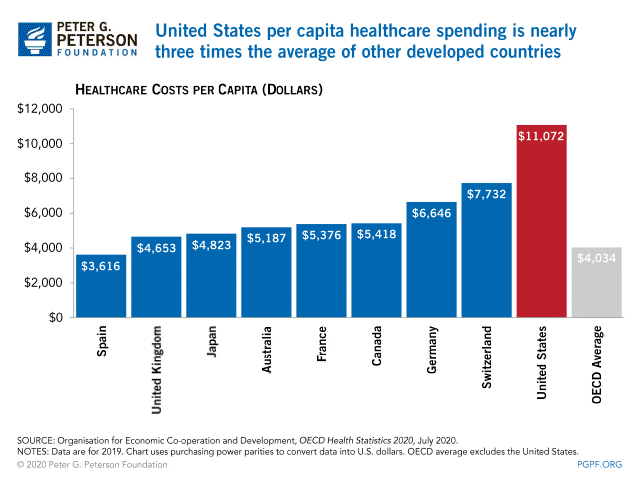Here in France the health cover ( healht insurance) is espensive every month, we have to have a other insurance than the SQ is the gouvernement coverageYou would do much better arriving at a real understanding of this by researching on your own, and going back to look at the trendline in spending going back to the 1900s, or at least the 1960s. In america, healthcare is political and the status quo would lose economically were we to join the advanced modern world in a single payer system. As such, healthcare in the US has never been about what works best for society, but rather what lines the pockets of the private corporate health insurance and pharma industries.In France a medical opération of a cost of $ 4,000 is fully refunded but you Americans you must fully pay for an medicale operation?
And Obamacare is a cover for the poorest only?






http://www.commonwealthfund.org/~/m...ef/2015/oct/squires_oecd_exhibit_12.png?la=en

Per Capita Healthcare Costs — International Comparison
All of the 10 countries on the list spend at least 8.9% of their total GDP on health care. The difference, however, between the No. 1 spender, the United States, and the No. 10 spender, Canada, is quite large. Canada spent 10.2% of its GDP on health care in 2013, which amounted to $4,351 per person, while the United States spent 16.4% of its GDP that year, amounting to $8,713 per person.
According to Francesca Colombo, head of the health division at the OECD, “Higher health sector prices explain much of the difference between the U.S. and other high-spending countries.” She added that the health care system in the United States is also fragmented and overly complex, with a larger share of uninsured individuals than is common among developed countries. While every country on the list has near universal health care coverage, only 88.5% of Americans are insured. However, under the Affordable Care Act, the U.S. uninsured rate is on the decline.
Countries Spending the Most on Health Care
View attachment 118775
Subscribe to read

Health Care Spending as a Percentage of GDP, 1980–2013
GREAT Fenton Lum
Now show us where CA TX and other states
spend BILLIONS on inmates including ILLEGAL undocumented nationals
who aren't even US citizens. When that money could pay for HEALTH CARE
for LAW ABIDING citizens and taxpayers.
SHOW US THE MONEY!!!
I think we have found common ground now that you've abandoned the healthcare discussion for something else. I agree that corporate for profit prisons which signal this society’s return to profiting from bondage, with stocks traded on Wall Street, do siphon off taxpayer funding away from the commons into the hands of private corporations who lobby for more criminalized behaviors, longer sentencing, and provide a profit motive for more crime in society and high rates of recidivism.
But your healthcare money went to your endless war of global occupation funds.
Love the bold big all caps.
Not "abandoning" anything Fenton Lum
there are LOTS of issues combined into health care.
I have MORE issues to address that are part of the solution.
So I can still answer to the ones you brought up,
* plus bring up more * which are just as important
if we are going to solve this problem.
And the caps were to answer to all your graphs and stats
that didn't how much money was wasted on failed
prisons and mental health systems which could pay for health care...



